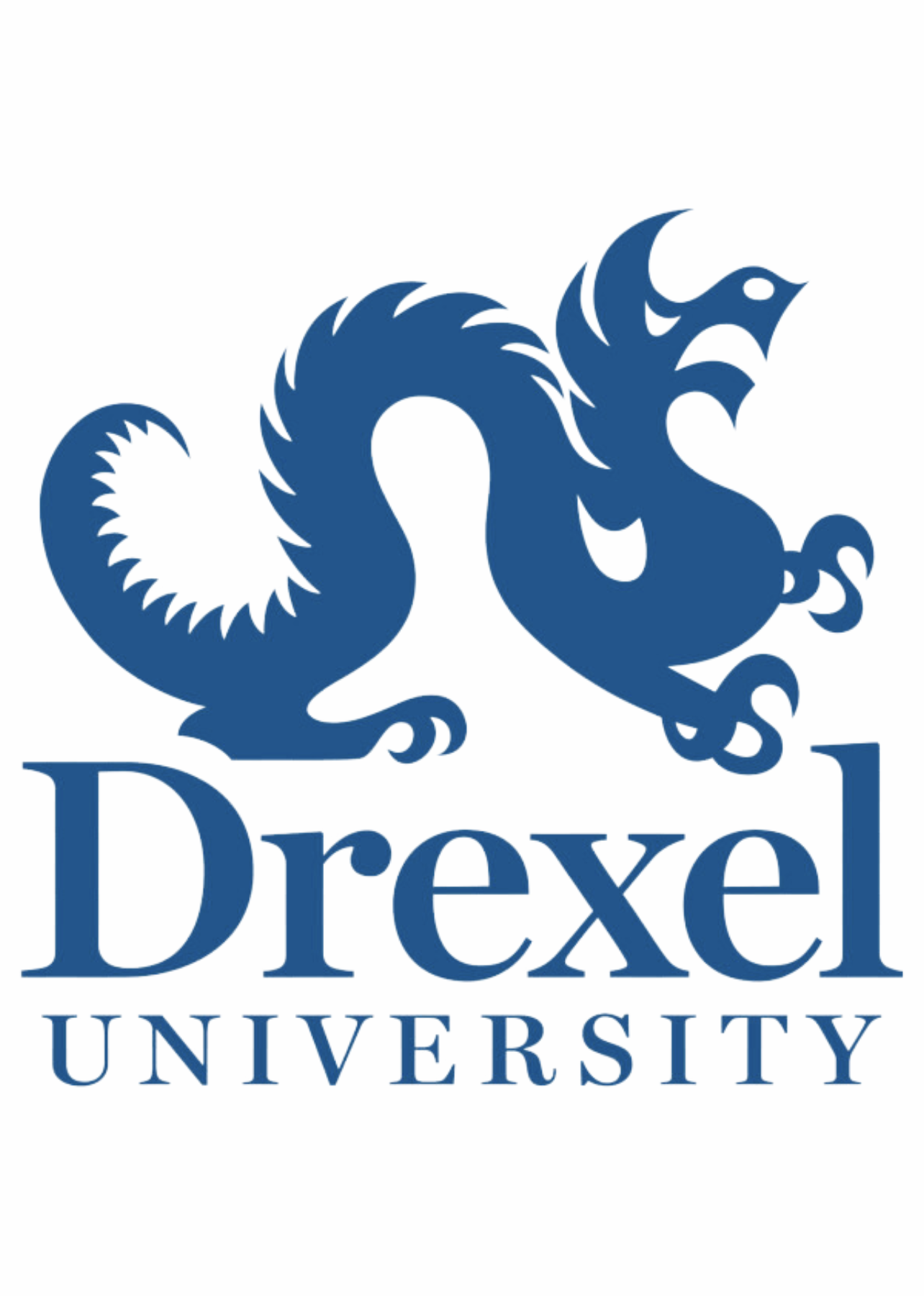Pursuing a master’s in curriculum and instruction equips students with the specialized knowledge and skills to design, implement, and evaluate educational programs. This program prepares graduates for roles such as curriculum developer, instructional coordinator, or educational consultant. According to the Bureau of Labor Statistics, instructional coordinators earn an average salary of around $66,490 per year.
The program can typically be completed in one to two years, depending on factors like enrollment status and program structure. As for the cost, the average tuition for master’s degree programs varies, but according to the National Center for Education Statistics, it should be roughly between $12,000-$30,000.
Why Trust Us
The Intelligent.com Higher Education Team is dedicated to providing students with independent, equitable school and program rankings and well-researched resources. Our expert-driven articles cover topics related to online colleges and programs, paying for school, and career outlooks. We use data from the U.S. Department of Education’s College Scorecard, the National Center for Education Statistics, and other reputable educational and professional organizations. Our academic advisory team reviews content and verifies accuracy throughout the year for the most current information. Partnerships do not influence rankings or editorial decisions.
- Analyzed over 2,000 national, accredited, and nonprofit colleges and universities
- 800+ rankings pages are reviewed and updated yearly
- Content is informed by reputable sources, surveys, and interviews with academic advisors and other experts
- Over 100 data points are reviewed for accuracy and quality throughout the year, including sources
How we rank schools
Our list features the best online Curriculum and Instruction degree programs at top colleges nationwide. Each school featured is a nonprofit, accredited institution — either public or private — with a high standard of academic quality for post-secondary institutions.
We evaluated each school’s program on tuition costs, admission, retention and graduation rates, faculty, reputation, and the student resources provided for online students. We collected data from trusted sources like the National Center for Education Statistics, individual school and program websites, school admissions counselors, and other data sources. Then, we calculated the Intelligent Score on a scale of 0 to 100 based on the following criterion:
Academic Quality:
- Admission rate versus enrollment rate
- Retention rate of students who return after year one
- Accreditation status (regional and programmatic)
- Nonprofit status, both private and public institutions
Graduation Rate
- Overall graduation rate
- Total number of currently enrolled students, including diversity metrics
- Student-to-faculty ratio
Cost and ROI
- In-state and out-of-state per-credit tuition rates and fees
- Required credits to graduate
- Earning potential after graduation
- Availability of federal student loans, scholarships, and other financial aid options
Student Resources
- Available student services for online-only and hybrid programs
- On-campus amenities like tutoring centers and the number of libraries
Read more about our ranking methodology.
Best 38 Accredited Master’s in Curriculum and Instruction Programs
FiltersInstitution Type
Status
- Intelligent Score
- Alphabetically By University Name
- Acceptance Rate
- Enrollment
- In-state Graduate Tuition
- Out-of-state Graduate Tuition
- In-state Undergraduate Tuition
- Out-of-state Undergraduate Tuition

UF College of Education
Intelligent Score: 99.71In-state: $4,477
Out-of-state: $25,694
In-state: $10,770
Out-of-state: $10,770
SAT: 1290-1460
ACT: 29-33
Resident: $448
Non-Resident: $1,138
On-Campus, Online
Council for the Accreditation of Educator Preparation
30

University of Colorado Boulder
Intelligent Score: 99.17In-state: $10,728
Out-of-state: $34,930
In-state: $11,826
Out-of-state: $11,826
SAT: 1130-1350
ACT: 25-31
In-State: $361 - $723
Out-of-State: $958 - $1,916
On-Campus
Higher Learning Commission
30

PennState College of Education
Intelligent Score: 99.05In-state: $15,025
Out-of-state: $24,413
In-state: $22,464
Out-of-state: $22,464
SAT: 1070-1300
ACT: 24-29
Resident: $1,040
Non-Resident: $1,803
On-Campus, Online
Council for the Accreditation of Educator Preparation
30

University of Colorado Denver
Intelligent Score: 98.45In-state: $10,728
Out-of-state: $34,930
In-state: $11,826
Out-of-state: $11,826
SAT: 1130-1350
ACT: 25-31
Resident: $450
Non-Resident: $1,400
On-Campus, Online
Higher Learning Commission
30

Kansas State University
Intelligent Score: 98.41In-state: $9,375
Out-of-state: $25,251
In-state: $10,212
Out-of-state: $10,212
SAT: N/A
ACT: N/A
Resident: $450
Non-Resident: $1,007
On-Campus, Online
Higher Learning Commission
31-36

University of Wisconsin - Madison
Intelligent Score: 97.76In-state: $9,273
Out-of-state: $37,161
In-state: $10,728
Out-of-state: $10,728
SAT: 1260-1460
ACT: 27-32
Resident: $670
Non-Resident: $1,503
On-Campus
Higher Learning Commission
30

Portland State University
Intelligent Score: 96.20In-state: $7,907
Out-of-state: $25,536
In-state: $14,652
Out-of-state: $14,652
SAT: 1000-1190
ACT: 17-24
Resident: $512
Non-Resident: $739
On-Campus, Online
Northwest Commission on Colleges and Universities
45

University of Maryland
Intelligent Score: 95.83In-state: $8,824
Out-of-state: $34,936
In-state: $13,158
Out-of-state: $13,158
SAT: 1270-1480
ACT: 30-34
Resident: $828
Non-Resident: $1,805
Hybrid
Association for Advancing Quality in Educator Preparation
30-39

University of Cincinnati
Intelligent Score: 94.95In-state: $9,723
Out-of-state: $25,057
In-state: $13,224
Out-of-state: $13,224
SAT: 1120-1330
ACT: 23-29
Resident: $413 - $620
Non-Resident: $740 - $1,110
On-Campus, Online
Higher Learning Commission
30

The University of Texas at Austin
Intelligent Score: 93.44In-state: $11,448
Out-of-state: $40,032
In-state: $12,028
Out-of-state: $12,028
SAT: 1210-1470
ACT: 26-33
Resident: $515
Non-Resident:$1,001
On-Campus
Southern Association of Colleges and Schools Commission on Colleges
30-36

University of Oregon
Intelligent Score: 92.50In-state: $10,962
Out-of-state: $35,881
In-state: $15,417
Out-of-state: $15,417
SAT: 1090-1290
ACT: 22-29
Resident: $743
Non-Resident:$1,067
On-Campus
Northwest Commission on Colleges and Universities
56

University of Connecticut
Intelligent Score: 92.03In-state: $14,406
Out-of-state: $37,074
In-state: $16,908
Out-of-state: $16,908
SAT: 1170-1390
ACT: 27-32
In-State: $1,084
Out-of-State: $2,301
On-Campus, Online, Hybrid
New England Commission of Higher Education
30

Virginia Tech
Intelligent Score: 91.32In-state: $32,274
Out-of-state: $36,090
In-state: $44,444
Out-of-state: $44,444
SAT: 1210-1410
ACT: 26-32
Resident: $846
Non-Resident: $1,705
On-Campus, Online
Southern Association of Colleges and Schools Commission on Colleges
30-48

Teachers College at Columbia University
Intelligent Score: 91.09In-state: $57,864
Out-of-state: $57,864
In-state: $49,024
Out-of-state: $49,024
SAT: 1460-1570
ACT: 33-35
$2,049
On-Campus
Middle States Commission on Higher Education
32

Boston University
Intelligent Score: 90.65In-state: $56,854
Out-of-state: $56,854
In-state: $56,854
Out-of-state: $56,854
SAT: 1310-1500
ACT: 30-34
$1,851 - $2,777
On-Campus, Online
New England Commission of Higher Education
30-36

University of San Diego
Intelligent Score: 88.25In-state: $52,120
Out-of-state: $52,120
In-state: $27,936
Out-of-state: $27,936
SAT: N/A
ACT: N/A
$906
On-Campus
Western Association of Schools and Colleges Senior College and University Commission
39-47

Drexel University
Intelligent Score: 87.92In-state: $53,868
Out-of-state: $53,868
In-state: $36,234
Out-of-state: $36,234
SAT: 1180-1380
ACT: 25-31
$1,079
On-Campus, Online
Middle States Commission on Higher Education
45

Boston College
Intelligent Score: 85.32In-state: $59,050
Out-of-state: $59,050
In-state: $31,824
Out-of-state: $31,824
SAT: 1330-1500
ACT: 31-34
$1,764
On-Campus
New England Commission of Higher Education
30
How to Choose a Master’s in Curriculum and Instruction Degree Program
Choose your area of study
Choosing your area of study is crucial as it sets the foundation for your career path and specialization. Consider factors like your career goals and areas of expertise. Research concentrations such as literacy education, STEM education, or special education to align with your interests and professional aspirations. Evaluate each concentration’s curriculum, faculty expertise, and career opportunities. Take into account the current trends and demands in education to ensure your chosen area of study aligns with industry needs and provides ample opportunities for growth and impact in your field.
Research schools and programs
Look into factors such as program accreditation and teaching methodologies. Explore each school’s reputation, rankings, and alumni success to gauge program quality and effectiveness. Consider factors like program format (online or on-campus), flexibility, and student support services to find a program that aligns with your learning preferences and lifestyle. In addition, researching program-specific opportunities such as internships, practicums, and research projects can enhance your learning experience and provide valuable hands-on experience in the field.
Prepare for tests and applications
Begin by familiarizing yourself with the application requirements of each program you’re interested in, including deadlines, required documents, and admission criteria. Allocate sufficient time to study for any standardized tests required for admission. Gather materials for your application, including transcripts, letters of recommendation, and a compelling personal statement highlighting your academic background and career aspirations. Pay attention to detail to ensure accuracy and professionalism, as this can significantly impact your chances of acceptance into your desired program.
Select your program
When selecting your program, take into account the factors you researched earlier. Evaluate each program’s curriculum, faculty expertise, and learning resources to ensure they align with your academic and career goals. Consider whether the program is accredited and what opportunities you may have for practical experience or research. Assess the program’s flexibility, including part-time or full-time enrollment options and online or on-campus formats. If you still have questions, it can be a good idea to reach out to program coordinators or admissions counselors to gather more information and clarify any questions or concerns you may have before making your decision.
Determine how you’ll pay for your degree
Begin your search for funding by filling out and submitting the Free Application for Federal Student Aid. Explore various funding options, such as scholarships, grants, fellowships, and assistantships. Investigate the availability of financial aid, including loans and work-study opportunities, to cover tuition, fees, and living expenses. Consider your personal financial situation and budgetary constraints. Research employer tuition reimbursement programs or professional development funds that may support your educational endeavors. Developing a clear plan for financing your degree will alleviate financial stress and allow you to focus on your academic and professional growth.
What Can You Expect From a Master’s in Curriculum and Instruction Degree Program?
A master’s degree program in curriculum and instruction equips students with the knowledge and skills necessary to develop effective educational programs and materials. Students expect to learn about curriculum development theories, instructional design principles, assessment strategies, and educational technology integration. The curriculum typically covers topics such as learning theory, curriculum planning, assessment methods, research methodologies, and educational policy analysis. Students may also explore specialized areas like multicultural education, special education inclusion, or STEM education.
Program duration varies depending on factors like full-time or part-time enrollment and credit requirements but typically ranges from 1.5 to two years. Some programs offer accelerated options for students looking to complete their degree faster.Prospective students should note any additional requirements such as field experiences, internships, or capstone projects. Some programs may require a thesis or comprehensive exam for degree completion. Also, consider the flexibility of course delivery, including online, hybrid or traditional classroom formats. Some programs may offer opportunities for hands-on experiences through practicum placements or collaborative projects with schools or educational organizations.
Potential courses you’ll take in a master’s in curriculum and instruction program
- Curriculum Development. This course covers theories and models of curriculum development, focusing on designing effective curriculum plans aligned with educational goals and standards. Students learn about needs assessment, goal setting, sequencing of learning experiences, and evaluation methods to create comprehensive curriculum frameworks.
- Instructional Design. In this course, students learn about the principles and practices of instructional design, including the systematic development of instructional materials and strategies to facilitate effective teaching and learning. Topics include learning theories, instructional design models, task analysis, and assessment design.
- Assessment and Evaluation. Students learn about assessment methods, including formative and summative assessments, standardized testing, and authentic assessment strategies. Emphasis is placed on data analysis and using assessment results to inform instructional decisions.
- Educational Research Methods. This course provides an overview of research methodologies commonly used in educational research, including quantitative, qualitative, and mixed-method approaches. Students learn how to design research studies, collect and analyze data, and interpret research findings. The course also covers ethical considerations in educational research and the application of research findings to inform educational practice and policy.
- Technology Integration in Education. In this course, students learn about instructional technology trends, digital literacy, and strategies for integrating technology into curriculum design and delivery. Practical hands-on experiences may include creating digital learning materials, designing online courses, and implementing technology-enhanced instructional activities.
Master’s in Curriculum and Instruction Degree Frequently Asked Questions
How do I apply to a master's in curriculum and instruction degree program?
To apply for a master’s in curriculum and instruction, review the program’s specific admission requirements, which typically include a completed application form, transcripts from previous academic institutions, letters of recommendation, and a statement of purpose. Some programs may require GRE or other standardized test scores. It’s crucial to communicate with an admissions counselor to understand the specific requirements and deadlines for the program. Highlight relevant experience or qualifications in education or related fields in your application materials to strengthen your candidacy. Ensure that all application materials are submitted accurately and on time to increase your chances of acceptance.
How much does a master's in curriculum and instruction degree cost?
The cost of a master’s in curriculum and instruction degree varies depending on factors like the institution, program format (online or in-person), and residency status. According to data from the National Center for Education Statistics, tuition for such programs ranges from $12,000 to $30,000 per year. Additional costs may include textbooks, technology fees, and other materials, which can amount to a few thousand dollars per year. Online programs may have lower tuition but still incur similar additional expenses.
How long does it take to earn a master's in curriculum and instruction degree?
Students generally complete a master’s in curriculum and instruction in 1.5 to three years, depending on factors such as program structure, enrollment status, and credit requirements. Full-time students may complete the program in 1.5 to two years, while part-time students can take longer, often up to three years or more. Online programs may offer more flexibility in scheduling, allowing students to spread their coursework over a more extended period, potentially accommodating work or other commitments. The total number of required credits, typically ranging from 30 to 45, also influences program length.

